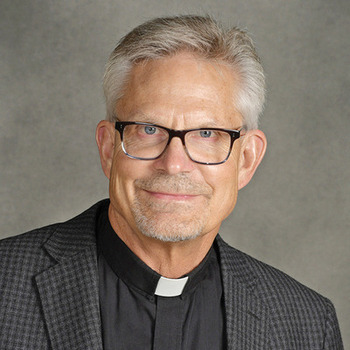-
 October 5, 2025The Lord replied, “If you have faith the size of a mustard seed, you say to this mulberry tree, ‘be uprooted and planted in the sea,’ and it would obey you.”
October 5, 2025The Lord replied, “If you have faith the size of a mustard seed, you say to this mulberry tree, ‘be uprooted and planted in the sea,’ and it would obey you.”The Lord replied, “If you have faith the size of a mustard seed, you say to this mulberry tree, ‘be uprooted and planted in the sea,’ and it would obey you.”
Of all the seeds a Palestinian would plant for harvest, the mustard seed was the smallest. During biblical times the mustard plant was commonly planted and harvested in various areas of Palestine. Known for its rapid growth, the ‘black mustard’ could grow up to ten feet in height, flourishing from one of the smallest seeds. As an apt symbol of the kingdom of God, the mustard seed is mentioned five times in scripture, all within the gospels of Matthew, Mark, and Luke. With a unique perspective of the ‘mustard seed,’ Sr. Mary Josephine, of the Congregation of the Dominican Sisters of St. Cecilia, recalls a memory of her childhood.
One of my fondest memories growing up was when my parents would pack all six of us kids in our blue Suburban and drive us to our great-aunt and great-uncle’s farm in Midwest City, Oklahoma. The farmhouse sat on many acres of land, purchased by my great-grandfather right before the United States entered World War I in 1917. My great-aunt and great-uncle continued with the upkeep of the farm, which my grandfather, who joined the military at the onset of World War II, often frequented, taking with him his daughter – my mother – where she spent many of her summers. In turn, she and my father would take us. . .to the beloved farm, where we would spend our mornings at work, afternoons at play, and evenings at rest.
I still remember rising at the sound of the rooster’s call, dressing in my jeans and long-sleeved shirt, eating a breakfast of eggs and oatmeal that my great-aunt had prepared, and working in the garden for a few hours in order to beat the summer heat of Oklahoma. I still recall being on my hands and knees as I dug through the red soil, feeling around for the potatoes that had grown since my uncle’s planting months earlier. As I worked, I would often wonder how the potatoes grew once they were in the soil. It seemed to me that all my uncle did after he planted was wait. Then, by a miracle of nature, the potatoes would appear and be ready for gathering.
One of the most crucial steps of this work, which I realized even then, involved waiting. Unbeknownst to me at the time, I realize now as I recall those youthful years that the Lord was teaching me something critical to the life of faith. That is, that my life is his garden, and that the science of waiting is often crucial to its growth. When faith is given to us through the gift of our baptism. . .the seed of faith does not remain stagnant – rather, it is a continual entrustment of oneself to God through all circumstances.
This kind of waiting is necessary for our life of faith because it demands a response – it is not within our control to make the seed of faith sprout with immediacy. Our response of faith entails our deliberate choice and even obedience to believe that the God of the universe – who has revealed himself through Jesus Christ – is altogether good and wills our good, even when circumstances surrounding us look anything but good.
Put another way, we must choose to believe in the goodness of God amid all our circumstances, even if it cannot be seen how they will turn out. Because we are unable to believe by ourselves, God gives us the help of the Holy Spirit who “aids us in our weakness” and who gives us the “realization of what is hoped for and evidence of things not seen” (Heb 11:1). The “waiting” you may currently be finding yourself in, no matter the season of life at hand, may be cultivating a seed, even if it is as small and seemingly insignificant as a mustard seed. You may be tempted to abandon the garden because you are unaware of what God already did before he invited you to come be a part of what he himself planted. But “be stouthearted and wait for the Lord,” as the Psalmist exhorts us (Ps 27:14), and your faith, which is often cultivated through waiting, will not be disappointed.
God Bless, Fr. Tim
FYI: “Anyone can count the seeds in an apple, but only God can count the number of apples in a seed.” (Robert Schiller, minister)
